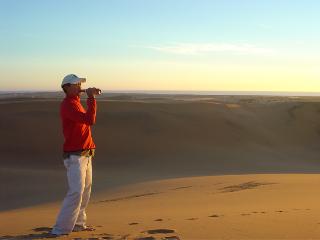Race Matters
Namibia is home for many black Africans. But adhering to Paretto’s Principle (the 80/20 rule), Namibia’s wealth is predominantly wrapped up within the white population. It makes sense, as many white Germans, Afrikaans, and the odd Brit settled here and assumed positions of influence and power (think of them as residual trash from the colonial time period) after they wiped out masses of black tribes (including during the Herero massacre, one of the worst genocides of the 1900s).
It was only in 1990 when Namibia won its independence from South Africa. So technically, it was in 1990 when apartheid “officially” ended. So really, till the early ‘90s, the white population in Namibia was legally “superior” to the blacks and justified in feeling so. We all know racism doesn’t end with a date. And we can see it continue today.
Even as an Asian traveling in Namibia you are treated differently than if you were white when you walk into a store. Kate is white. And I notice the difference in treatment between us. Kate sums it up best:
“If you are white, they talk to you like friendship could be an option if they got to know you. If you are non-white, they provide you the service for the sheer purpose of the economic transaction, i.e., they want your business, but not friendship.”
If you are black…good luck.
Hopefully, as the older, more stubborn generation passes on, the younger, more tolerant professionals will be more accepting. I know racism exists in the States. But it is more subtle. America has had more time for the race issue to evolve into something more comfortable since the civil rights movement. Given time, I’m sure Namibia will be the same.

Color doesn't matter when you drink enough.
|

